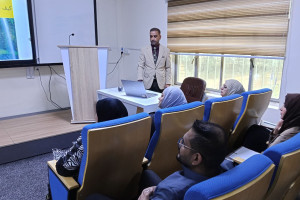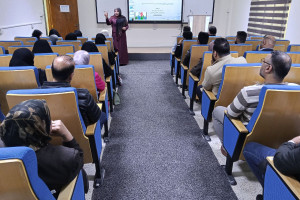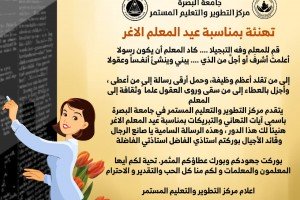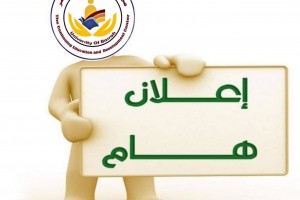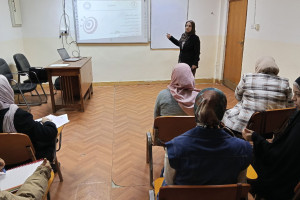
Basrah, Iraq - November 2, 2023* - Basrah University's Center for Development and Continuing Education held a symposium on October 31, 2023, titled "Al-Aqsa Flood from the Academic Perspective of Basrah University: What Comes After the Flood?" The symposium was attended by Ali Hussein Rashk, assistant to the university's president for academic affairs, and university staff.
The symposium featured presentations by a number of experts on Palestinian affairs, including Iyad Mohammed Aboud, director of the university's cultural center, who highlighted the Balfour Declaration and how part of the land was ceded in exchange for the continuation of rule by a certain group. He also discussed Iraq's law criminalizing normalization with the malformed entity, making it the only Arab country to have passed such a law.
Qais Nasser Rahi stressed that the world is called upon to stand up to this brutality, which has usurped rights and violated prohibitions in all religions. Rahi explained the Al-Aqsa Flood as the death of politics, which led to the creation of a generation of Palestinian resistance, as well as the oppressive local conditions that led the people of Gaza to this flood, including the Israeli entity's accounting of food and medicine for the Palestinian people, which left many of them below the poverty line.
Eymen Mahdi Saleh discussed the scenarios that could follow the Al-Aqsa Flood, including calling up reserve soldiers, allocating additional funding for armament, and moving towards an invasion of Gaza. Saleh added that it is possible that they will take another scenario, which is a war from a distance and the pursuit of genocide with the blessing of America, and it is possible to move towards a regional war by starting a third world war.
Akhmed Jaber Salem, director of the office of the university president, focused on the economic axis and mentioned that after the Al-Aqsa Flood, Israeli companies suffered heavy losses, the currency eroded significantly with a decline in foreign trade and tourism, and the export of oil in the pipelines extending to Egypt was suspended. The Israeli Bank estimated their losses at seven billion dollars since the operation began. As for the situation in Gaza, investment decreased, individual income shrank, production decreased, which affected the living conditions, and there was a shortage of resources, a diversion of investors, and accumulation of debt. The occupying entity focused on destroying the infrastructure, even hospitals. Salem concluded the symposium by saying that we are against Zionism until the recovery of the occupied land and that the mujahideen, despite their small number, have brought down the myth of the Israeli army.
*Translation:*
**Basrah University held a symposium on October 31, 2023, to discuss the Al-Aqsa Flood, a recent wave of Palestinian resistance against the Israeli occupation. The symposium was attended by academics, university staff, and members of the public.
Speakers at the symposium discussed a variety of topics related to the Al-Aqsa Flood, including the history of the conflict, the current situation in Gaza, and the potential consequences of the conflict.
One speaker, Iyad Mohammed Aboud, highlighted the Balfour Declaration, a 1917 document that called for the establishment of a Jewish homeland in Palestine. Aboud argued that the Balfour Declaration is a key source of the conflict between Palestinians and Israelis.
Another speaker, Qais Nasser Rahi, stressed the importance of international support for the Palestinian cause. Rahi argued that the world must stand up to Israeli aggression and occupation.
Eymen Mahdi Saleh discussed the potential scenarios that could follow the Al-Aqsa Flood. Saleh warned that the conflict could escalate into a regional war.
Akhmed Jaber Salem discussed the economic impact of the Al-Aqsa Flood. Salem argued that the conflict has had a devastating impact on the Palestinian and Israeli economies.
The symposium concluded with a call for a peaceful resolution to the conflict

